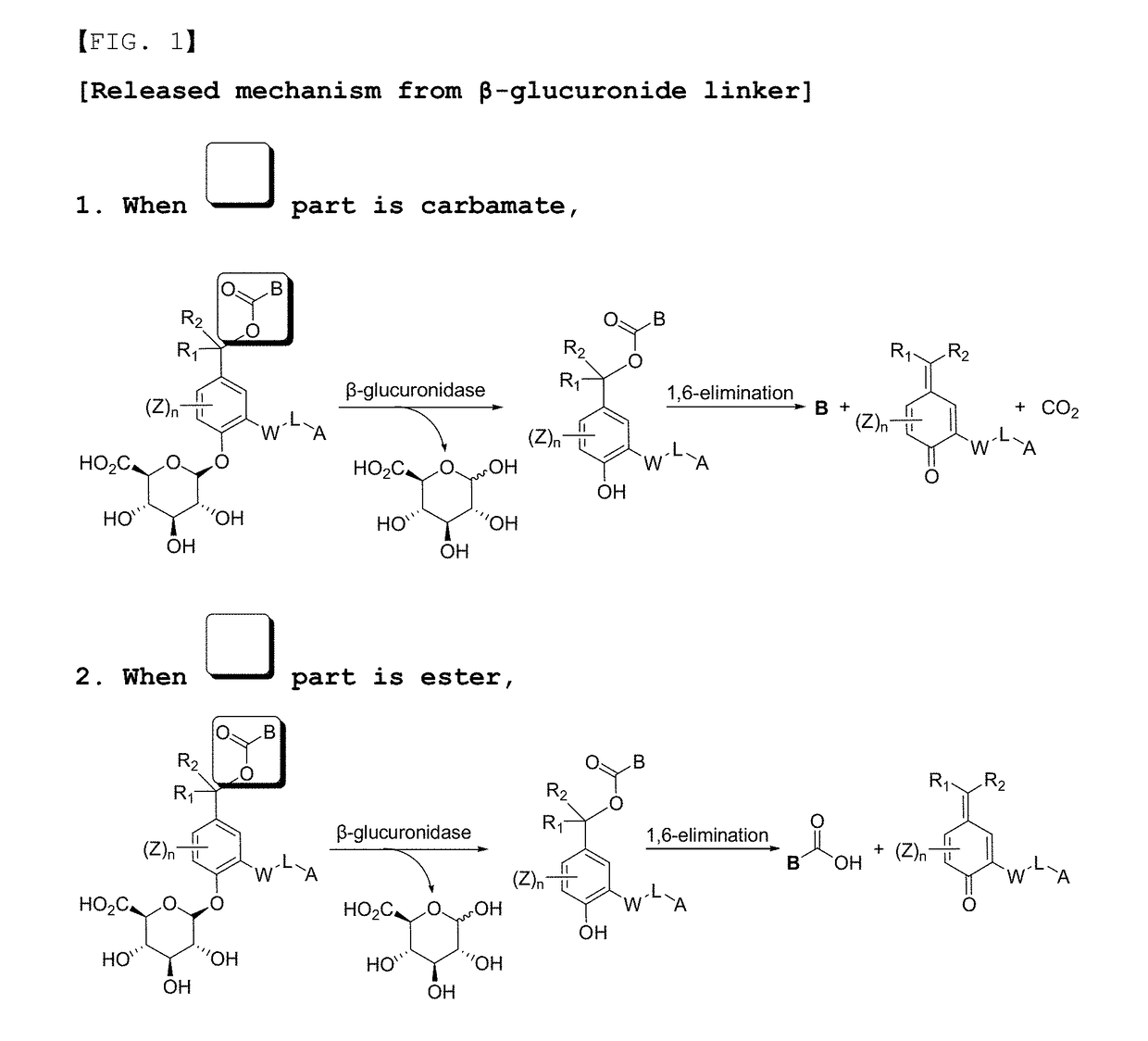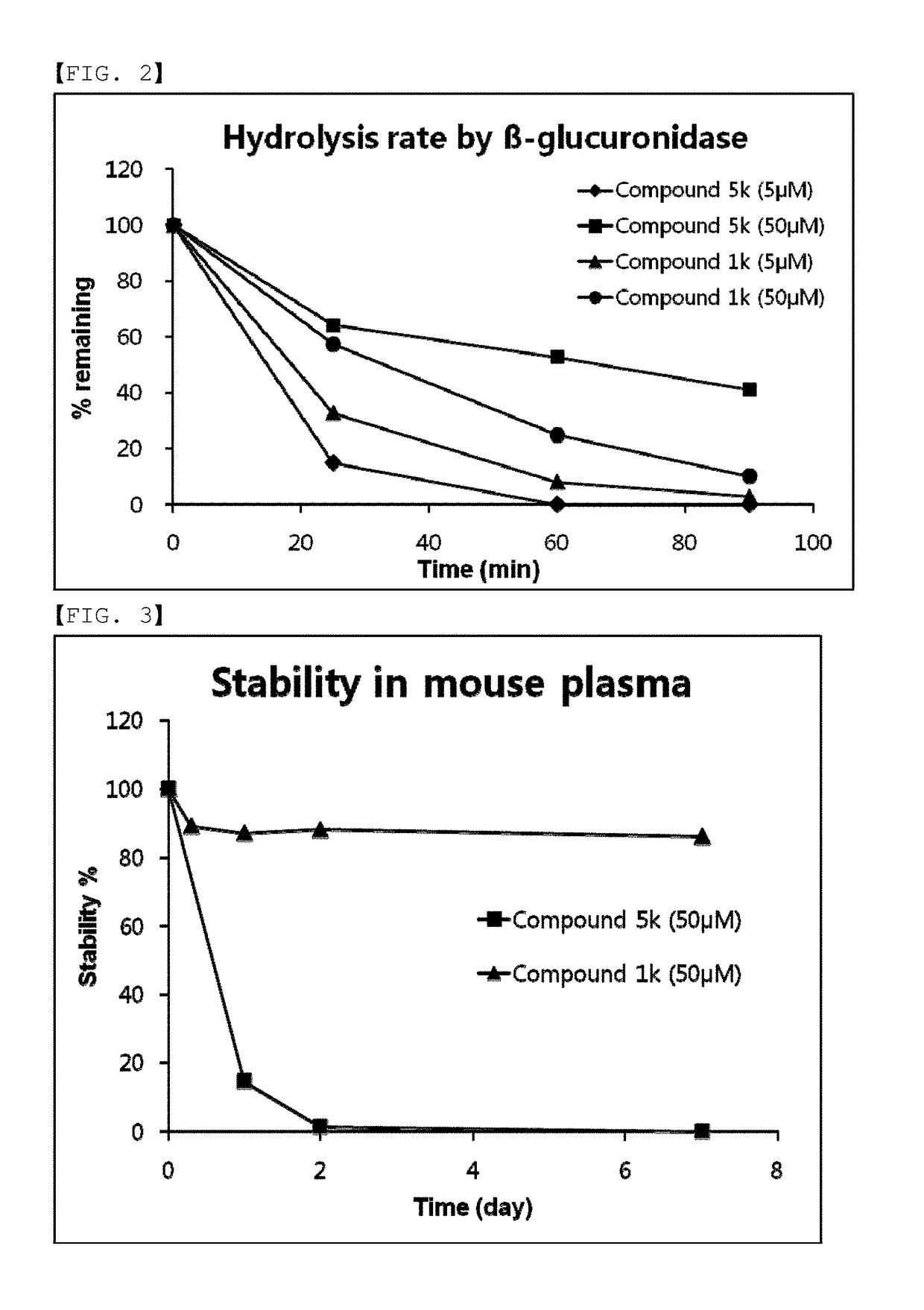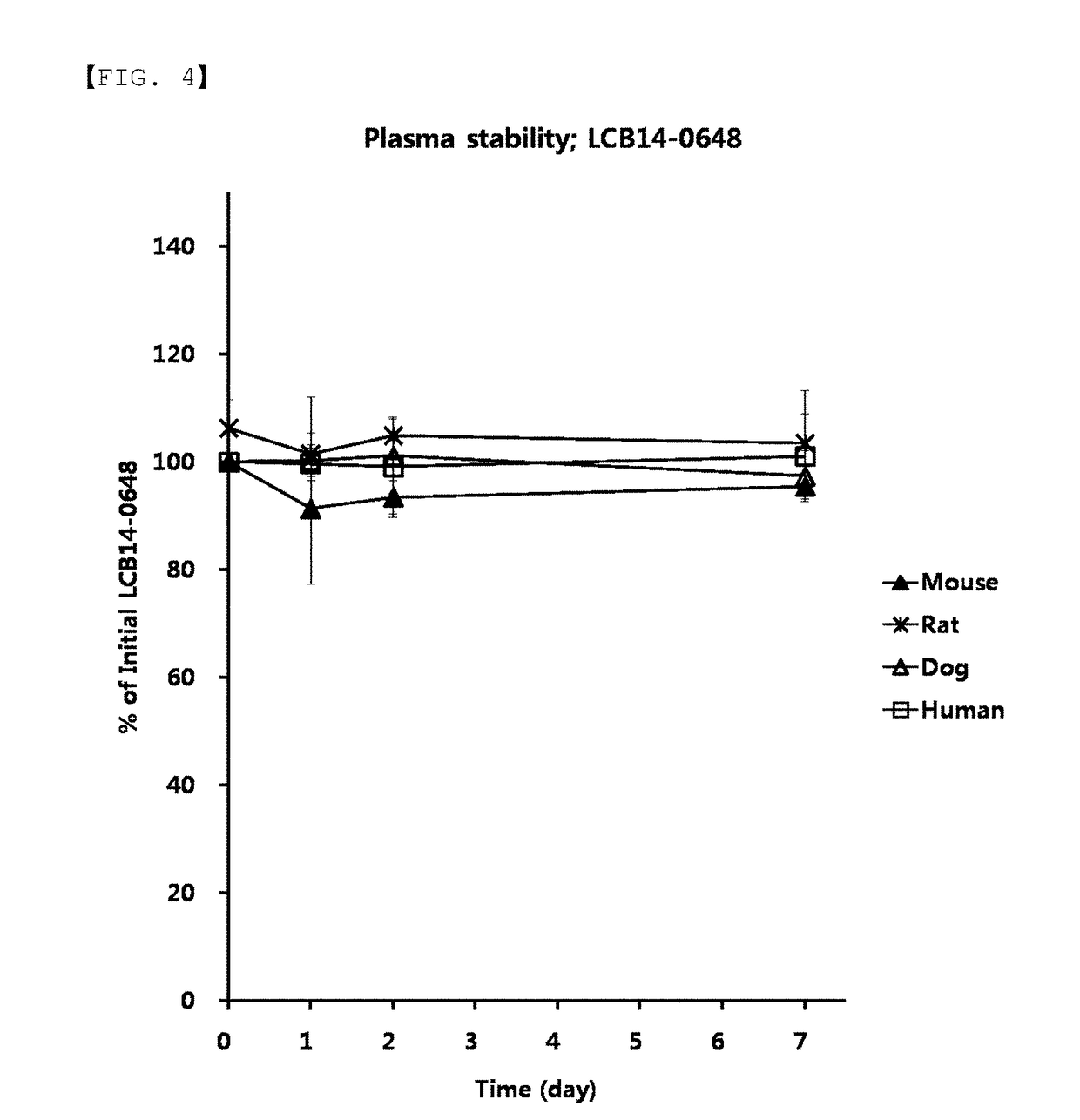Compounds comprising self-immolative group
a self-immolative and compound technology, applied in the direction of drug compositions, antibacterial agents, immunological disorders, etc., can solve problems such as stability problems
- Summary
- Abstract
- Description
- Claims
- Application Information
AI Technical Summary
Benefits of technology
Problems solved by technology
Method used
Image
Examples
examples 2 and 3
Preparation of Compounds 2i and 3i
[0241]
Preparation of Compound 2a
[0242]After 5-formylsalicylic acid (2 g, 12.038 mmol) was dissolved in DMF at 0° C. under nitrogen atmosphere, 2-(trimethylsilyl)ethanol (1.72 mL, 12.038 mmol) and dimethylaminopyridine (DMAP, 147 mg, 1.204 mmol), and dicyclohexylcarbodiimide (DCC, 2.5 g, 12.038 mmol) were added thereto. The mixture was stirred at room temperature for 12 hours. After the reaction was completed, ethylacetate (100 mL) and distilled water (100 mL) were added thereto. The organic layer obtained as described above was dried over anhydrous sodium sulfate and concentrated under reduced pressure. The residue was subjected to column chromatography, thereby obtaining Compound 2a (1.6 g, 50%).
[0243]1H NMR (400 MHz, CDCl3) δ 11.38 (s, 1H), 9.77 (s, 1H), 7.48 (d, J=8.4 Hz, 1H), 6.61 (dd, J=8.4, 2.0 Hz, 1H), 6.53 (d, J=2.0 Hz, 1H), 5.36-5.25 (m, 4H), 4.23 (m, 1H), 3.73 (s, 1H), 2.06 (s, 9H)
Preparation of Compound 2b
[0244]After Compound 2a (60 mg, 0...
example 4
Preparation of Compound 4i
[0282]
Preparation of 3-bromo-5-formylsalicylic acid (Compound 4a)
[0283]After 5-formylsalicylic acid (1 g, 6.019 mmol) was dissolved in DMF at 0° C. under nitrogen atmosphere, N-bromosuccinimide (1.07 g, 6.109 mmol) was added thereto and the mixture was stirred at 70° C. for 3 hours. After the reaction was completed, ethylacetate (100 mL), 2N—HCl aqueous solution (2 mL), and distilled water (100 mL) were added thereto. The organic layer obtained as described above was dried over anhydrous sodium sulfate and concentrated under reduced pressure. The residue was subjected to column chromatography, thereby obtaining Compound 4a (1.2 g, 84%).
[0284]1H NMR (400 MHz, DMSO-d6) δ 9.64 (s, 1H), 8.19 (d, J=2.4 Hz, 1H), 8.00 (d, J=2.0 Hz, 1H), 3.16 (s, 1H)
[0285]Compound 4i was prepared using prepared 3-bromo-5-formylsalicylic acid (Compound 4a) by a method similar to methods of preparing Compounds 2i and 3i of Examples 2 and 3.
[0286]EI-MS m / z: 1328(M+)
examples 5 to 7
Preparation of LCB14-0648, LCB14-0664, and LCB14-0663
[0287]
[0288]Compound C was prepared by a method disclosed in Korean Patent Laid-Open Publication No. 10-2014-0035393.
Preparation of LCB14-0648 (Example 5)
[0289]After Compound 2i (20 mg, 0.014 mmol) was dissolved in ethanol (0.7 mL) at room temperature under nitrogen atmosphere, Compound C (3.7 mg, 0.017 mmol) was added thereto, and the mixture was stirred at 45° C. for 2 hours. After the reaction was completed, LCB14-0648 (10.2 mg, 49%) was obtained using Prep HPLC.
[0290]EI-MS m / z: 1441(M+)
[0291]LCB14-0663 (Example 6) and LCB14-0664 (Example 7) were prepared by a method similar to the method of preparing LCB14-0648 (Example 5).
[0292]EI-MS of LCB14-0663: m / z: 1520(M+)
[0293]EI-MS of LCB14-0664: m / z: 1353(M+)
PUM
 Login to View More
Login to View More Abstract
Description
Claims
Application Information
 Login to View More
Login to View More - R&D
- Intellectual Property
- Life Sciences
- Materials
- Tech Scout
- Unparalleled Data Quality
- Higher Quality Content
- 60% Fewer Hallucinations
Browse by: Latest US Patents, China's latest patents, Technical Efficacy Thesaurus, Application Domain, Technology Topic, Popular Technical Reports.
© 2025 PatSnap. All rights reserved.Legal|Privacy policy|Modern Slavery Act Transparency Statement|Sitemap|About US| Contact US: help@patsnap.com



